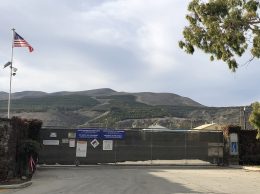Tri-county hospital systems have enough PPE to protect staff
IN THIS ARTICLE
- Health Care & Life Science Topic
- pacbiztimes Author
By pacbiztimes Friday, June 19th, 2020
Personal protective equipment levels are holding steady in the Tri-Counties as more parts of the economy reopen.
At the start of the COVID-19 crisis, hospital systems scrambled to find gear to protect staff members as they treated people who were possibly infected.
Through community partnerships, donations and state assistance, the hospitals have been able to source enough gear to keep medical providers safe, and as part of the state’s guidelines, county and regional hospitals must have a robust plan to provide all of their workers with PPE.
As part of the effort to increase PPE supplies for medical workers, the state of California ordered and distributed millions of gowns, masks, gloves and other pieces of equipment.
In San Luis Obispo County, the state has distributed almost 200,000 N-95 respirator masks, 585,000 procedure masks, more than 6,000 gowns, more than 10,000 face shields and almost 345,000 gloves.
Santa Barbara County received more than 1.3 million N-95 respirator masks, 327,000 procedure masks, almost 20,000 gowns, almost 10,000 face shields and more than 435,000 gloves.
Ventura County got almost 1.6 million N-95 respirator masks, 3.2 million procedure masks, more than 127,000 gowns, more than 131,000 face shields and 251,000 gloves.
Because of the amount of supplies, most hospital systems in the area reported having more than enough supplies. Ventura and SLO counties didn’t have a detailed breakdown on their websites like Santa Barbara County does, but county officials in both Ventura and SLO have confirmed their regions continue to meet guidelines. Lompoc Valley Medical Center, the only regional hospital which doesn’t have more than 15 days’ worth of supplies on hand, says that it has between four and 14 days’ worth.
Even with hospital needs being met, the Health Care Foundation of Ventura County is continuing to collect donations for PPE and other important items. Many of the items, like hand-sewn masks, are being used to help protect people like social workers as they go into the community, or in hospital settings.
Amy Towner, CEO for the foundation, said volunteers continue to donate and create supplies because of the uncertainty COVID-19 brings.
“We really don’t know what’s going to happen with the pandemic,” Towner said.
Even if the pandemic was to end tomorrow, Towner said having masks on hand is still important. Ventura County is going into both wildfire and Valley Fever seasons, and both will affect the air quality. People who have lung conditions or weakened immune systems will be at higher risk for lung infections.
“Ventura has historically been very proactive, and we want to continue to be proactive,” Towner said. “So we are preparing for the worst and hoping for the best.”
The county is also collecting donations for farmworkers. Through the Farmworker Resource Program, people can donate supplies like beans, rice, flour, toilet paper and cleaning supplies to the farmworker community. As the farmworker community is very low income, someone missing work to care for a sick loved one — or getting sick themselves — can have a very immediate negative effect on their family’s ability to provide for itself, pay rent or buy food.
In the past two months, Ventura’s Farmworker Resource Program has donated 300 boxes of food to the community. There are approximately 43,000 farmworkers in Ventura County, so while they haven’t been able to reach a lot of people, Talia Barrera, administrative manager for the Farmworker Resource Program, said every box helps.
“(The boxes) really make a difference for the farmworkers,” Barrera said.
Additionally, the agency has been distributing locally-made masks and hand sanitizer to the farmworkers and is working with doctors to visit them.
The Farmworker Resource Program will provide a team of doctors that speaks three languages — English, Spanish and Mixteco, an indigenous language — to make sure they reach as many people as possible.
Doctors have also been able to test farmworkers on-site, making it easier for families to take proper precautions.
“It’s really encouraging for everyone to provide a little bit of support for the farmworking community,” Barrera said.
SLO County is also reaching out to its farmworker community. Toward the end of May, SLO County Agricultural Commissioner Marty Settevendemie announced the county was making about 54,000 surgical masks available to growers and farmworkers in the region.
• Contact Amber Hair at [email protected].
Related Articles
 Friday, October 14th, 2022
Friday, October 14th, 2022











